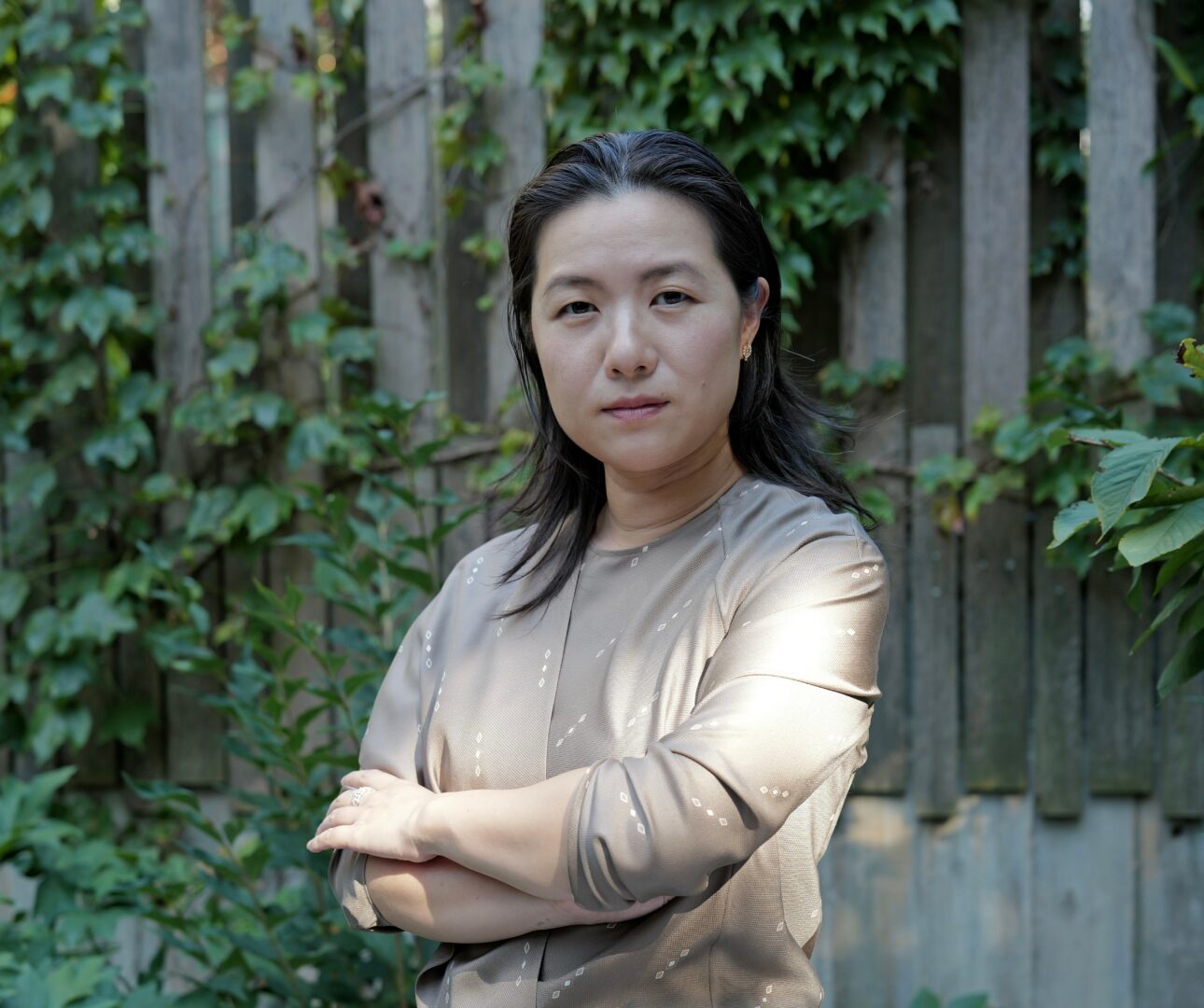Alright – so today we’ve got the honor of introducing you to Fran Jazzan. We think you’ll enjoy our conversation, we’ve shared it below.
Fran, so great to be with you and I think a lot of folks are going to benefit from hearing your story and lessons and wisdom. Imposter Syndrome is something that we know how words to describe, but it’s something that has held people back forever and so we’re really interested to hear about your story and how you overcame imposter syndrome.
“I worry my son won’t survive at a top school—none of us even graduated college.”
A parent said this to me during weekend counseling at a Bronx high school, and it landed like a punch. Sixteen years ago, I was seeing the same pattern everywhere—kids unsure how to start essays or applications, public schools with counselor-to-student ratios near 1:600, families quietly wondering whether they even belonged in the conversation. As a first-generation immigrant, I’d carried that doubt into boardrooms, job interviews, and admissions panels. Sometimes parents questioned whether I was the right fit—understandable, given how personal this work is—but hearing my own inner critic echoed back was sobering.
So I stopped asking, “Do I belong here?” and started asking better questions: for parents, “How can I help?” and for students, “What do you really want?” That’s when everything shifted. Conversations became about goals—gap years, wild-card programs they’d never considered, or simply the confidence to choose their own path.
For six years I watched students who’d been written off surprise everyone. In 2016 I took the leap and built my practice, Luma Advisory—”Luma” meaning light—because I wanted students to find their own. That’s when I realized belonging isn’t something you’re granted—it’s something you build, one honest conversation at a time. And that realization became the foundation of everything I’d build next.

Thanks for sharing that. So, before we get any further into our conversation, can you tell our readers a bit about yourself and what you’re working on?
What We Do at Luma Advisory
I’m the founder of Luma Advisory, a New York-based education consultancy where we help students design lives they’re proud of—then tell those authentic stories in their college applications.
What’s New at Luma
Fall 2025 Master Class — What Colleges Are Really Looking For: A live, practical deep-dive on selection, essays, activities, and this cycle’s biggest myths, with candid Q&A and real examples.
Digital learning expansion: Short, useful guidance on Instagram and Xiaohongshu (RED)—admissions insights from a counselor who’s also a mom of young kids: balanced, real, and jargon-free.
Community & mentorship: More touchpoints for Lumies already in college—check-ins on major fit, internships, and pivots—so support continues after admission.
What Makes Our Approach Special
Story-first strategy: We start with “What do you really want?” and turn curiosity into action—research, community initiatives, creative builds—so impact is real, not résumé filler.
Long-horizon planning: From early high school through the college transition, we map academics, summers, testing, and activities with intention (not exhaustion).
Specialized support: We regularly advise international students, athletes, and students with learning differences, coordinating with schools and specialists so the plan fits the person.
What This Looks Like in Practice
The Colorado “gold-miner”: An eighth-grader obsessed with gold mining joined our field trek, then built a mini-research project from it. Her research project became the centerpiece of her later application, demonstrating how authentic passion outweighs perfect test scores.
Publishing-track research: We helped a student land a research assistant role with a New York Times bestselling author on their next book—scoping the outreach, portfolio materials, and timeline so she contributed meaningfully and built real expertise.
Division I (D1) lacrosse game plan: A scholar-athlete family Zoomed with me from the road between tournaments; together we balanced NCAA timelines with grades and testing, mapped target programs, and built a recruiting narrative aligned with academics.
Teaching Social Impact (How We Make “Meaning” Real)
Most teens hear “social impact” and think charity hours. In my seminar, we strip it back: impact = a real problem, real people, and your real effort—kept up over time. We talk about dignity, consent, and staying power. If a “passion project” isn’t meaningful, it won’t last. (We stress the 4Ms—Motive, Map, Make, Measure—so projects serve real people and endure.)
Why Families Choose Us
We optimize for meaning, not “more.” We keep students’ voices authentic and schedules humane. And we bring an insider lens—I’ve reviewed over a thousand applications as an admissions reader—so we focus attention where it actually matters.
Relationships & reach: We build long-term relationships with families, often supporting siblings over many years. For most of our 16 years, Luma grew almost entirely by referral. This year, I’m opening the doors wider—with our first online master class and original digital content—to share this work with families I haven’t met yet.

If you had to pick three qualities that are most important to develop, which three would you say matter most?
Three Most Important Qualities
1) Bias Toward Action — ship before you feel ready
When I took a sabbatical from a cushy job to start Luma, the lack of structure was brutal. I drank too much coffee, ate too many cookies—and still sat down every morning to draft programs and proposals. I piloted with one family, listened hard, and refined. That ship → learn → refine loop became my operating system.
How to build it:
Daily maker hour: 60–90 minutes to produce one tangible thing
Tiny pilots with real users: Launch the smallest version; improve from feedback
90-day sprints: One goal, three moves, weekly check-ins
2) Know Your Worth — improve the product, not the price
When I began serving families in Mexico City, a trusted confidant urged me to lower my fees. I didn’t. Instead of discounting, I localized the experience: clearer outcomes, bilingual materials, WhatsApp-friendly check-ins, evening hours across time zones. Families understood what they were investing in—and we kept our standards high.
How to build it:
Price is a message: Hold price; make the offer clearer
Adapt the experience, not the worth: Local delivery, same standards
Show the receipts: Define outcomes; recap progress visibly
3) Customer Service that Builds Trust — clarity × consistency × care
Families trust me with their kids’ futures—that’s sacred. Trust isn’t a claim; it’s receipts: clear expectations, steady follow-through, honest timelines. And it’s personal. I check in on holidays, celebrate milestones, and send voice notes when students need encouragement. That human rhythm is why Luma grows by referrals and multi-year relationships.
How to build it:
Publish your promises: Clear “what I do/don’t do,” response times—then keep them
Calendar of care: Schedule milestone check-ins; use each family’s preferred channel
Write the receipt: After meetings, send brief recaps with decisions and next steps

Okay, so before we go we always love to ask if you are looking for folks to partner or collaborate with?
I love partnering with people who want to give students experiences outside the usual curriculum and help them turn curiosity into real work.
Schools & educators (public, independent, international) to host Luma pop-ups and advisory workshops.
Content partners (media, brands, creators) for practical, parent-friendly pieces on college admissions—especially from the perspective of a counselor who’s also a mom navigating this world.
Nonprofits, museums, labs, and startups to co-design meaningful student projects and research opportunities.
Reach us at [email protected]
Contact Info:
- Website: https://www.lumaadvisory.com
- Instagram: lumaadvisory

so if you or someone you know deserves recognition please let us know here.




